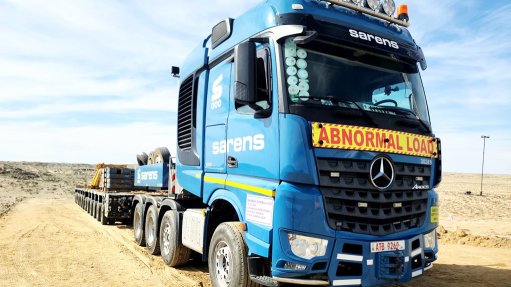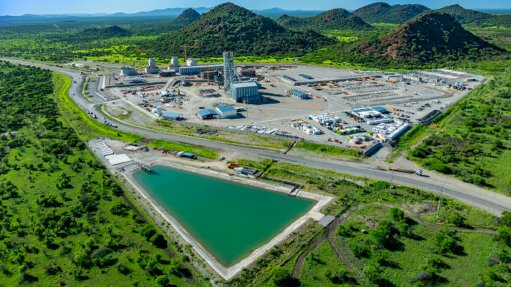Eyeing the diaspora dollar
Zimbabweans are becoming creative when it comes to raising funds to invest in their economy, and the stimulus seems to be the ouster of Robert Mugabe, the long-ruling dictator who ran into the ground a country once hailed as the “Jewel of Africa” by Tanzania’s Julius Nyerere.
During the latter part of Mugabe’s 37 years in power, foreign investors gave the country a wide berth. Consequently, its infrastructure crumbled and companies closed shop by the dozen. This, coupled with the destruction of agriculture as the unintended consequence of a push to right the wrongs of colonial land dispossession, hoisted unemployment to stratospheric levels. Figures as high as 95% are bandied about, but Mugabe’s government is known to have cited a curious definition that regards subsistence farming and other informal pursuits as “employment” to claim that only about 11.3% of able-bodied citizens were not working.
The Zimbabwean authorities have at long last awoken from their slumber and are devising creative ways to harness from citizens the funds needed to restore the country to its former glory.
Last month, the central bank announced plans to issue tobacco and gold production financing bonds to Zimbabweans in the diaspora. The cash to be raised will fund the operations of small-scale operators in both sectors.
As Mugabe’s rule became increasingly repressive from around 2000 and the economic conditions became unbearable, many voted with their feet and Zimbabweans are now found in every nook and cranny of the world. A Zimbabwean was even mentioned among the survivors of a devastating earthquake that struck Haiti in 2010. That is 11 800 km from home – and not in a country known for its prosperity, nogal. This just shows how desperate people had become. Of course, for many, South Africa and the UK were the destinations of choice.
Tobacco farmers and small-scale gold producers struggle to access offshore financing, and it is hoped the cash that will be tapped from the diaspora community will alleviate this problem, while generating foreign currency for the country. The agriculture bondholders will receive the capital amount plus interest as a single “bullet” payment at the end of the tobacco season, while the gold bondholders will be repaid monthly as gold is delivered to the sole authorised buyer of the metal in the country.
A third planned initiative to get Zimbabweans living abroad to contribute towards the rebuilding of their country will entail the launch of what has been dubbed the Incentive for Diaspora Investment Accounts scheme. This will enable the target group to open accounts with any of the local banks; the funds raised will be used to finance investment projects in the country. As an inducement, depositors will be entitled to a 7% “diaspora remittance incentive” from the central bank. This will be over and above the interest offered by the depositor’s bank.
There is more – Emmerson Mnangagwa’s constant refrain since assuming the reins of power in November has been that Zimbabwe is open for business and that citizens, including those based abroad, must be among those taking advantage of the opportunities offered by the new dispensation. At least one Zimbabwean-owned outfit incorporated in Zimbabwe and South Africa and going by the name of Diaspora Infrastructure Development Group (DIDG) has heeded the President’s plea. DIDG has teamed up with South African State-owned freight logistics group Transnet to recapitalise the ailing National Railways of Zimbabwe (NRZ). Last year, the consortium won a $400-million tender to undertake this work and, in February, it delivered the first batch of rolling stock to NRZ. This included five mainline locomotives, seven passenger coaches and 157 wagons.
As regular readers of this column will recall, Ethiopia has long since recognised the role that citizens can play in infrastructure development. Through various means, Ethiopians at home and abroad have, since 2011, contributed about $500-million towards the building of a massive dam on the Nile river; the main source of funds for the project are loans from local banking institutions.
One hopes that more and more African countries become more inward looking when seeking project finance.
Article Enquiry
Email Article
Save Article
Feedback
To advertise email advertising@creamermedia.co.za or click here
Press Office
Announcements
What's On
Subscribe to improve your user experience...
Option 1 (equivalent of R125 a month):
Receive a weekly copy of Creamer Media's Engineering News & Mining Weekly magazine
(print copy for those in South Africa and e-magazine for those outside of South Africa)
Receive daily email newsletters
Access to full search results
Access archive of magazine back copies
Access to Projects in Progress
Access to ONE Research Report of your choice in PDF format
Option 2 (equivalent of R375 a month):
All benefits from Option 1
PLUS
Access to Creamer Media's Research Channel Africa for ALL Research Reports, in PDF format, on various industrial and mining sectors
including Electricity; Water; Energy Transition; Hydrogen; Roads, Rail and Ports; Coal; Gold; Platinum; Battery Metals; etc.
Already a subscriber?
Forgotten your password?
Receive weekly copy of Creamer Media's Engineering News & Mining Weekly magazine (print copy for those in South Africa and e-magazine for those outside of South Africa)
➕
Recieve daily email newsletters
➕
Access to full search results
➕
Access archive of magazine back copies
➕
Access to Projects in Progress
➕
Access to ONE Research Report of your choice in PDF format
RESEARCH CHANNEL AFRICA
R4500 (equivalent of R375 a month)
SUBSCRIBEAll benefits from Option 1
➕
Access to Creamer Media's Research Channel Africa for ALL Research Reports on various industrial and mining sectors, in PDF format, including on:
Electricity
➕
Water
➕
Energy Transition
➕
Hydrogen
➕
Roads, Rail and Ports
➕
Coal
➕
Gold
➕
Platinum
➕
Battery Metals
➕
etc.
Receive all benefits from Option 1 or Option 2 delivered to numerous people at your company
➕
Multiple User names and Passwords for simultaneous log-ins
➕
Intranet integration access to all in your organisation

















